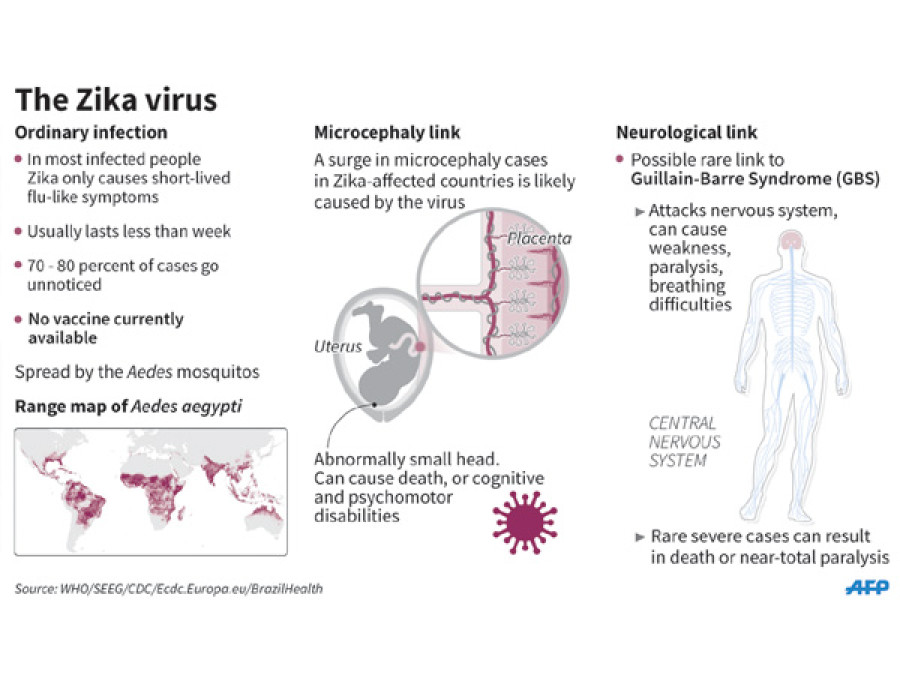National
Govt ‘prepares’ itself for Zika outbreak
The government has stepped-up its preparations to deal with the potential outbreak of Zika virus through improved surveillance and detection mechanism.
The government has stepped-up its preparations to deal with the potential outbreak of Zika virus through improved surveillance and detection mechanism.
Nepal has recently received reagents that will be used by the National Public Health Laboratory (NPHL) to detect Zika virus among suspected patients. The NPHL received a consignment of the reagents last week that they believe can be used to test Zika virus in some 1,000 persons.
Dr Geeta Shakya, director of NPHL, said any person suspected with the virus will first go through dengue and chikungunya tests. “We will conduct tests for Zika virus only after dengue and chikungunya is ruled out,” said Dr Shakya.
Reagents are essential to confirm Zika virus infection through molecular test.
The presence of Aedes aegypti mosquitoes that is linked to the transmission of Zika virus in many areas of Kathmandu increases the threat of the spread of the disease if a person with the virus were to enter Nepal. A 2014 study by the Epidemiology and Disease Control Division (EDCD) of the government showed a high concentration of Aedes aegypti mosquitoes, the causative agent of Zika and dengue, in places such as Thankot, Satungal, Naikap, Kalanki and Gongabu within the Valley. Most of these locations fall on the route connecting the Capital with districts outside. Chitwan, Birgunj, Nepalgunj, Dhangadhi, Nawalparasi and Butwal are also at risk.
The EDCD said they will soon begin search and destroy campaign of the vectors. Dr Guna Nidhi Sharma, a senior official at the EDCD, said they have conducted trainings on handling cases of infectious disease including Zika in Chitwan, Pokhara and Nepaljung. Interactions with senior neurologists and gynaecologists were also recently held. “A reporting mechanism has been activated so any hospital inside the country with the suspicion of dengue, chikungunya or Zika will be sent for laboratory test at the NPHL,” said Dr Sharma.
Despite preparations, the health desk at the only international airport, Tribhuvan International Airport, remains dismal. The desk that was established after the global threat of Ebola virus disease has been facing shortage of human resources and necessary equipments to quarantine any suspected patient. However, the desk remains empty as passengers make way without any surveillance.
People contracting Zika exhibit symptoms of fever, rash, joint paint or conjunctivitis while patients also complain of muscle pain and headache.
On Tuesday, the WHO also issued a travel restriction warning pregnant women not to travel to areas where Zika virus outbreaks have been reported. “Pregnant women whose sexual partners live in or travel to areas with Zika virus outbreaks should ensure safe sexual practices or abstain from sex for the duration of their pregnancy,” the WHO states.




 25.12°C Kathmandu
25.12°C Kathmandu













